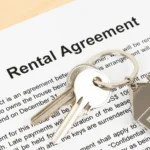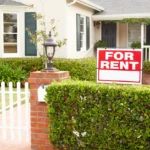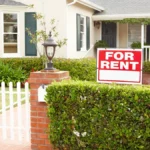Building Lasting Tenant Relationships
Establishing and maintaining positive relationships with tenants is crucial for property management success. In this blog series, we delve into the significance of fostering strong tenant relationships and its many benefits to property management. From ensuring tenant satisfaction to promoting a sense of community within rental properties, these relationships play a pivotal role in the overall success of property management. Join us as we explore the various aspects of building lasting tenant relationships and uncover the key strategies for nurturing a harmonious and thriving rental property community.

Benefits of Building Strong Tenant Relationships
Building solid relationships with tenants is crucial for property management companies. When tenants feel valued and respected, they are more likely to renew their property leases, take better care of the property, and communicate openly about any issues. This can lead to higher tenant satisfaction and lower turnover rates, ultimately benefiting the property owner.
Effective Communication for Tenant Relations
Open and effective communication is critical to fostering positive tenant relationships. Property managers should be responsive to tenant inquiries and concerns, keeping the lines of communication open at all times. Clear and timely communication can help prevent misunderstandings and conflicts. This leads to a more harmonious rental property experience for both parties.
Addressing Tenant Needs and Concerns
Taking proactive steps to address tenant needs and concerns demonstrates a commitment to their well-being. Promptly handling maintenance requests, providing necessary amenities, and being attentive to tenant feedback can significantly enhance tenant satisfaction and loyalty.
Creating a Sense of Community
Property managers can create a sense of community within the rental property by organizing social events or providing communal spaces for tenants to interact. This fosters a positive living environment and encourages tenants to feel more connected to their home and community.
Respecting Tenant Privacy and Rights
Respecting tenant privacy and rights is essential for maintaining trust and rapport. Property managers should adhere to all legal requirements and always respect tenants’ privacy. This helps in building a positive and respectful relationship with tenants.
Handling Disputes and Concerns
Inevitably, disputes or concerns may arise between tenants and property management. Handling these situations with professionalism, empathy, and fairness is crucial for maintaining positive tenant relationships. Resolving conflicts amicably and fairly can strengthen trust and loyalty among tenants.
Providing Clear Lease Agreements and Policies
Transparent leasing services agreements and policies are essential for establishing trust and understanding between property managers and tenants. Clearly outlining expectations, rules, and responsibilities helps prevent misunderstandings and promotes a harmonious relationship between property owners and tenants.
Showing Appreciation and Recognition
Expressing appreciation and recognition for responsible and respectful tenants can go a long way in building solid relationships. Recognizing good tenants through gestures of appreciation or small tokens of gratitude can foster a positive and respectful atmosphere within the rental community.
Building and nurturing positive relationships with tenants is a cornerstone of successful property management. It benefits the tenants and contributes to the overall success and reputation of the property management company.
Effective Communication with Tenants
Effective communication is key to building lasting tenant relationships. Here are some essential tips for landlords to communicate effectively with tenants:
- What to Say to a Potential Landlord? When communicating with a potential landlord, being professional and courteous is essential. Express your interest in the property and inquire about specific details or requirements. Ask relevant questions about the property lease terms, maintenance responsibilities, and community rules or regulations. Additionally, it’s beneficial to convey your willingness to maintain the property and adhere to the property lease agreement.
- What Not to Say to a Landlord? It’s crucial to avoid making unrealistic promises or commitments that you cannot fulfill. Refrain from making demands or exhibiting a confrontational attitude. Additionally, it’s important to avoid discussing sensitive or personal matters unrelated to the tenancy. Maintaining a respectful and professional tone in all communications is essential.
- How to Respond to a Rude Landlord? If you encounter a rude landlord, you must remain composed and maintain a professional demeanor. Respond to their communication courteously and respectfully, addressing any concerns or issues diplomatically. If the situation becomes challenging, consider seeking assistance from a property management company or legal counsel to manage the matter effectively.
By following these communication guidelines, landlords can foster positive and constructive relationships with their tenants, leading to a harmonious and mutually beneficial tenancy experience.
Understanding Tenant Rights and Responsibilities
As a tenant, it’s essential to understand your rights and responsibilities to ensure a harmonious and respectful relationship with your landlord. Here are some common questions and concerns regarding tenant rights and responsibilities:
Illegal Things Landlords Do and What You Can Do About It
Landlords are prohibited from engaging in illegal activities such as discrimination, invasion of privacy, or failing to maintain a safe and habitable living environment. If you encounter any illegal behavior from your landlord, it’s crucial to document the incidents and seek legal advice to protect your rights.
Can a Landlord Tell You How to Live?
While landlords have the right to set reasonable rules and regulations for the property, they cannot dictate personal lifestyle choices. As a tenant, you have the freedom to live according to your preferences as long as it doesn’t violate the property lease agreement or disrupt the peace of other tenants.
Can a Landlord Tell You to Get Rid of Stuff?
Landlords cannot arbitrarily demand tenants dispose of their personal belongings unless they pose a safety hazard or violate the property lease terms. If you receive such a request, review your lease agreement and seek clarification from your landlord to understand the basis of their demand.
Can a Landlord Tell You How Clean to Keep Your House?
While landlords can expect tenants to maintain a reasonable level of cleanliness to prevent property damage, they cannot impose excessive or unreasonable cleanliness standards. It’s essential to refer to the property lease agreement to understand the maintenance expectations and address any concerns with your landlord if you feel the expectations are unreasonable.
Resolving Issues and Concerns Promptly
At Avenue Residential Leasing & Management, we understand the importance of resolving issues and concerns promptly. Our dedicated property management team is committed to providing efficient and effective solutions to address any property-related issues that may arise. We prioritize prompt communication and action to address all concerns promptly.
- Proactive approach to issue resolution
- Transparent communication
- Streamlined resolution process
- Customer satisfaction guarantee
- Continuous improvement
- Partner with Avenue Residential Leasing & management
Final Thoughts
Fostering positive tenant relationships is crucial for a thriving rental property business. Landlords can cultivate trust and loyalty by consistently providing exceptional service and maintaining open communication. Avenue Residential Leasing & Management is dedicated to ensuring tenant satisfaction and strives to create a welcoming environment for all residents. Building lasting tenant relationships enhances the overall rental property experience and contributes to a harmonious and prosperous community for all involved.






